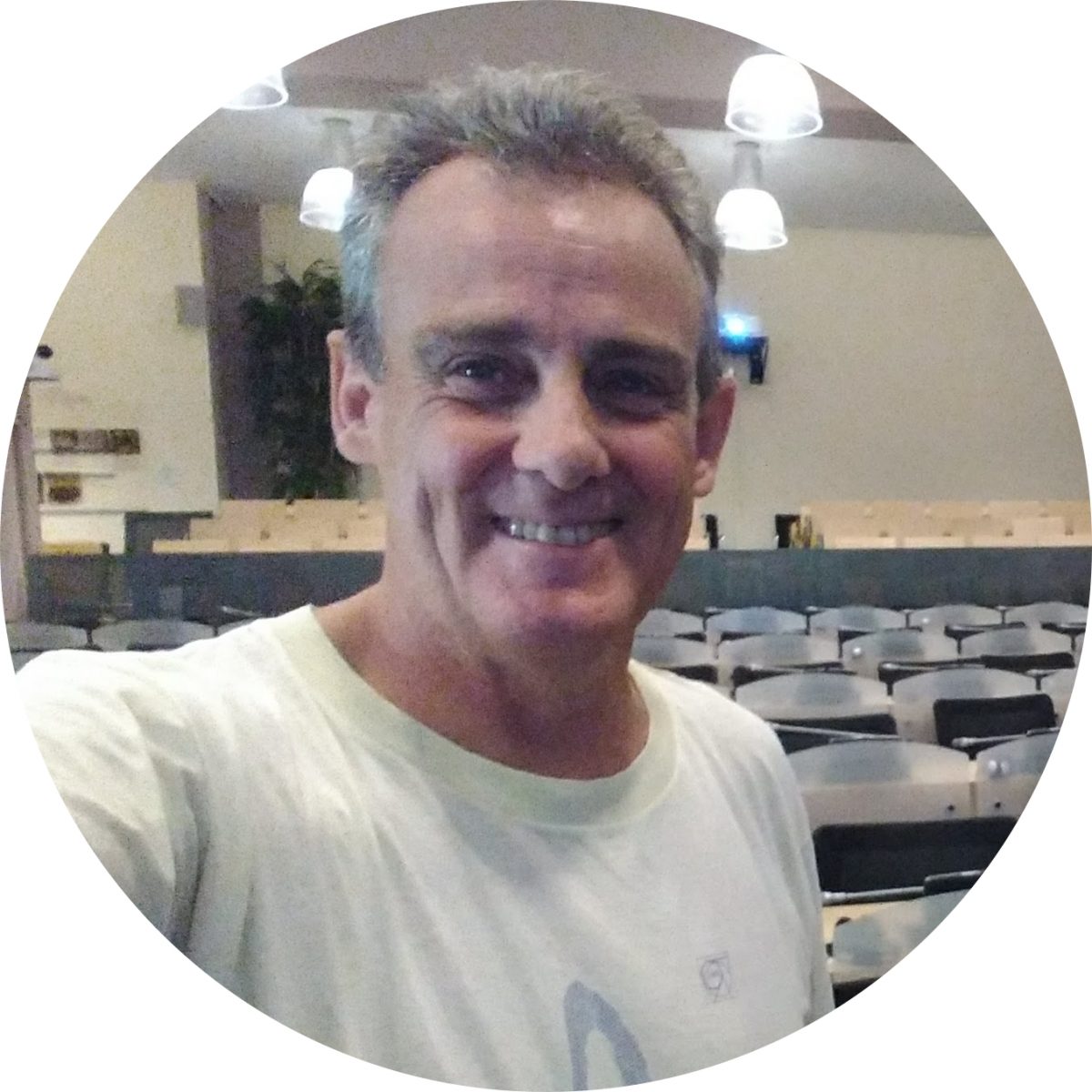It is said that when particle physicists hear beauty, they think about the bottom quark first. “It is just so beautiful”, ensures Pablo, a particle physicist currently working at CIEMAT, the Centre for Energy, Environmental and Technological Research, located in Madrid (Spain).
Physics has an impressive aesthetic side for Pablo. Sometimes, aesthetic arguments play an important role. Sometimes, they may be giving us a hint on what is the right direction. The task of a physicist is closely related to beauty. That is why CERN is considered by many as one of the most beautiful places in the world
Pablo collaborated with CERN very early on. After finalizing his studies at the University of Madrid in 1989, he started his PhD thesis at CIEMAT, part-time in Madrid, part-time at CERN, working in data analysis from the LEP (Large Electron-Positron collider). He was part of the L3 experiment, an experiment based at CERN, led by the Nobel Prize winner, Samuel Ting. Then, he got a short postdoc at DESY, and later on, an assistant professor position in the University of Basel (Switzerland), but in both cases, Pablo was based at CERN.
In one way or another, for about 26 years, he has been related to CERN, but it was in 2001 when Pablo carried an enormous power: he was the responsible for the Higgs Analysis Group. Undoubtedly, one of the most exciting periods of his career: they had hints of a tentative signal of the Higgs boson, later proved to be a statistical fluctuation.
After that, he moved to CMS and continued working in the Higgs boson analysis till the final discovery in 2012. It was in 2016, when Pablo stopped being a CERNie. Returning to Spain was not easy, but sometimes personal decisions outweigh professional ones.
It meant working in a country in which the bureaucracy is a barrier for research, while being a CERNie, all around you are facilities to go forward with your investigations. Moreover, as Pablo fondly recalls, “when you are at CERN, you are in the center of the universe. CERN is everything to a particle physicist”.
When he came back to Madrid in 2002, he got a position as a staff researcher at CIEMAT, and although, professionally, there was no interruption, Pablo felt that that change was like taking a leap backwards in his career. There are places, as there are quarks, that cannot be compared.
In the spring of 1919, a young Andalusian poet, Federico García Lorca, arrived in the Spanish capital. Also that year, León Felipe began his poetic work in Madrid. “Pasar por todo una vez, una vez sólo y ligero, ligero, siempre ligero”.
The 3Ps-triangle has always been present in Pablo’s life: Poetry, Physics and Philosophy. To him, science is not something you can only live on, from a personal point of view. We all need to cultivate our spirit. Pablo does it this way: reading poetry, a genre that he loves, and, when he was in high school, through philosophy. He likes to look at physics as a part of it.
When you work in fundamental physics, as he does, you are continuously facing this dilemma: trying to reveal the secrets of the origin of the universe. And it does not all end here. The hardest part is to explain all that to the people interested, and also to the youngest. This challenging outreach part is also one of the most exciting ones of Pablo’s work these days.
For him, being a CERNie was kind of a dream. Well, this can be nuanced: he had never really dreamt of that because it was far, far away. When he came to CERN for the first time as a summer student, he humbly thought “oh, my god, who are these guys that are opening the doors of this lab to someone like me?”.
Once you are part of it, you realize what role CERN plays in people’s lives. Pablo highlights all that you learn at CERN from everything, but physics or technology. All that is not in the books. Because, as he says, the only way of knowing that fire burns is putting your hand in the fire.
When Pablo was a CERNie, he, accidentally, met Paco Barradas, the coordinator of the CERN Spanish Teachers Programme. When they were already friends, Paco asked him if he would like to participate in those programmes: he said yes. This was another of Pablo’s most exciting experiences at CERN: giving seminars to the teachers, showing them the experiments and having deep discussions after dinner in the terrace of the main cafeteria.
When many of your dreams have come true, you have to create new ones. “If I go back about 40 years, and ask myself, what do you want to be when you are older? I would have answered, I want to be a physicist, and work in a lab, perhaps not the greatest lab in the world, just a lab. And in some sense, this came true”, says Pablo.
Now, his wishes are a bit more abstract: to continue being excited about everything in life for a long period of time. For at least another 50 years or 40 years. And, if he ever dies, and he is able to say something after he is dead, he would say, “oh, shit, I died. I was so excited with all of this”.
As a Lorca’s verse says, no es sueño la vida. ¡Alerta! ¡Alerta! ¡Alerta!
